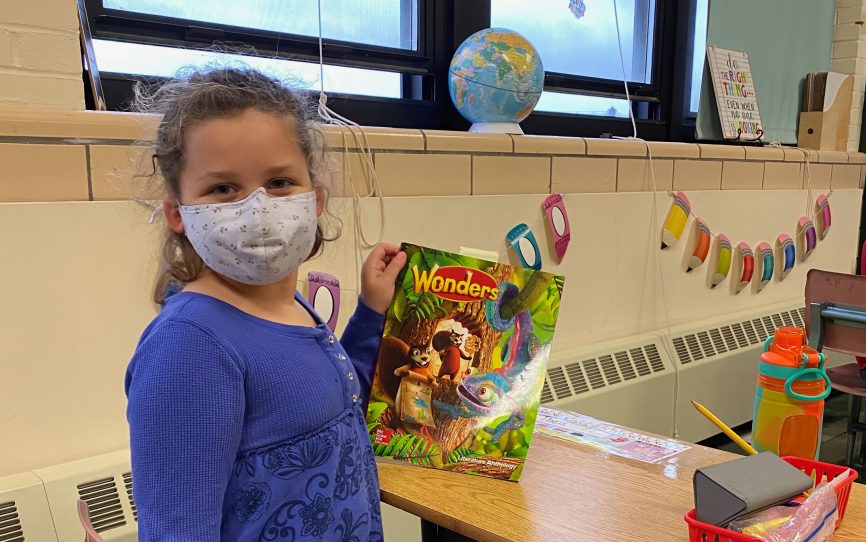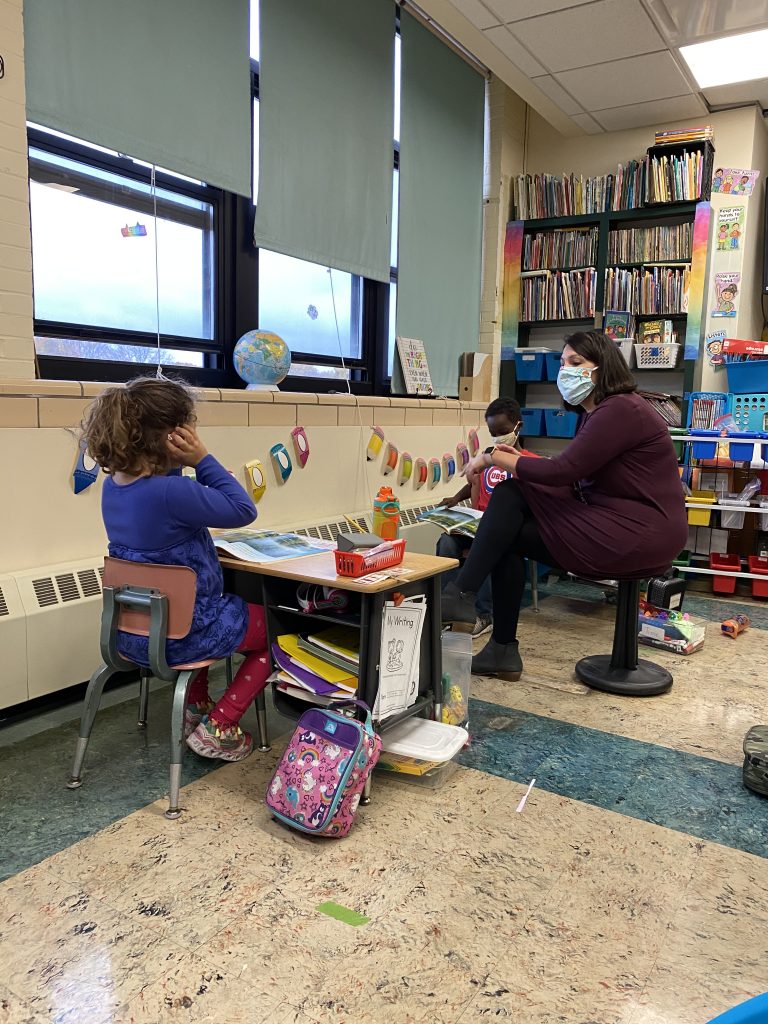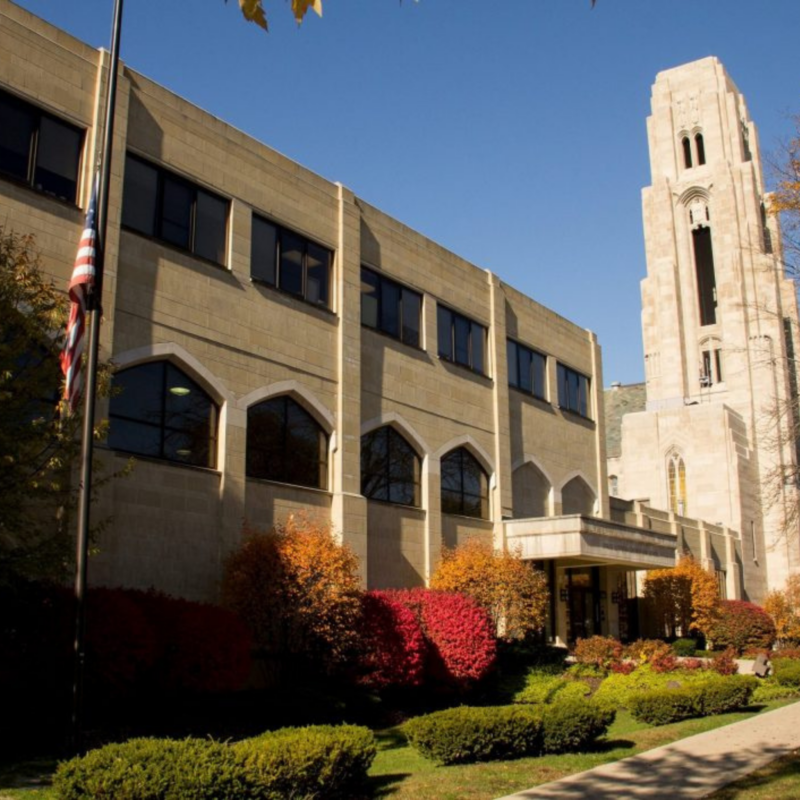
First graders grow in confidence as they master reading skills at Grace
School’s hard,” first grade teacher Jessi Pederson told her students at the beginning of the school year. “It should be hard, but it should be just the right amount of hard.”
Knowing what is the “right amount of hard” is a critical part of teaching young children how to read. Both Pederson and Grace School’s new reading specialist, Kristin McShane, agree that it’s important to set kids up for success.
“I’m a big advocate of prevention,” says McShane when asked about how kids feel when they’re struggling to master reading skills. “I try to prevent as much as possible those negative feelings.”
Pederson joined the Grace faculty in August of 2020 with 17 years of experience teaching in Lutheran schools, including nine as a first-grade teacher. She has also taught full-day kindergarten.
During the early weeks of first grade, Pederson says she spends a lot of time giving students the tools they need to figure out hard problems. This includes learning to set and work toward goals.
“We talk about certain words we’re not allowed to say in our room, like ‘I can’t do this,’ or ‘this is too hard.’ Instead we need to train our brain and say, ‘okay this may take some effort. Let me take a deep breath and try it a different way.’”
“We spend a whole lot of time these first few months on different tools we can use, like how can we sound out a word.” She tells students to start with the vowel and then blend it with the sound at the end. Once they recognize the word family, for example, words that end with -at, it’s easy to add the initial sound and say “cat” or “hat” or “that.”
“I got it the very first time!” they say. That kind of manageable struggle followed by success keeps them learning.

Sounding out longer words starts with recognizing that they are made up of syllables, says McShane. A parent working with a child can use a finger to isolate the first syllable and then guide the child to the next one. The word “several” is manageable if you see it in smaller parts: sev-er-al.
McShane started her career as a third and fourth grade teacher, but her love of teaching goes back to her childhood. “Most little girls like to play school. I was the person that created a school. When I was 10, maybe 11, I had neighborhood kids come over in the summer and I ran a school out of my basement.”
McShane’s analytical mind and interest in figuring out how to help children be successful led her to a master’s degree in special education. “I wanted to know more and advance my skill set to work in the areas of reading, writing and math for the kids who weren’t learning with typical inside-the-box instruction.”
She adds, “There are children with a range of learning needs in any given classroom.… I’m a really analytical person and I’m always trying to wiggle in and figure out the root issue and potential solutions.”
McShane owns her own business, The Learning Specialist. She and her staff provide support for students with learning differences. Her work with a family that had students in Grace School brought her to Principal Bill Koehne’s attention, and she’s now at Grace three mornings a week, focusing on children in grades 1-5 who need strategic help with reading.
Introducing herself to the Grace community early in the school year McShane described her job in terms of helping children gain confidence: “Through our work together, students are able to see that with hard work and perseverance (and the provided necessary and effective support, of course) they can do way more than originally perceived. The best part of my work is directly witnessing these limiting beliefs give way to confidence, skill and strength!”
Within the first-grade classroom Pederson provides lots of small group instruction, allowing her to differentiate based on students’ individual needs. Because of covid precautions, students must stay at their own socially distanced desks for much of the day, but she is finding ways to work within these restrictions. Her language arts “Daily Five” include a variety of ways to practice reading and writing skills and support students as they tackle more challenging texts. She works with one group of students while others work independently or are supervised by a teaching assistant. Lots of resources in the classroom, including word tiles, whisper phones (which help kids hear phonetic sounds more distinctly), a variety of games — and books and more books — keep kids interested.
McShane is working on creating brief video clips for parents with tips on how to help their children read at home. She says it’s helpful for parents and children to share clear expectations when they sit down to read together. Are they reading for enjoyment or to practice a skill? Are they using an appropriate text, one that the child is able to read? Are there words that the child does not know how to read yet, words such as “because” that the parent will say for the child?
Pederson says that often it’s the emerging readers, not the more accomplished ones, who make the most progress in first grade — “once we’ve built up their confidence.” By the time they leave first grade at the end of May, they’re not only reading, she has lined them up with books to read over the summer—books that are interesting, fun, and just “the right amount of hard.”

